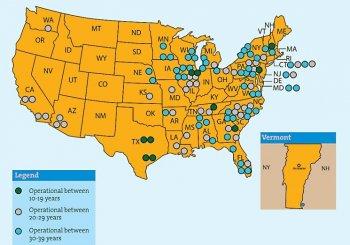BOSTON—In this cybercentury, where the Internet, cell phones, and technology have advanced communication lines so much so as to allow individuals across state and even country borders to be able to see each other on a screen on the drop of a dime, law makers continuously face difficult challenges.
When the Internet becomes a facilitator of child predation, for instance, in the all-too-familiar cases where a child molester uses the Internet to set up a meeting with his or her victim, does the jurisprudence fall with the federal government or the state?
In 2006, Congress devised the Adam Walsh Act after a 12-year-old boy named Adam Walsh was murdered. The lawmakers hoped to deal with the new dangers facing children.
The law gives the federal government, whose sentences and convictions are harsher than those of state governments, the power to handle child predation cases where the Internet has played a crucial role in the commission of the act. The act states, “Whoever unlawfully seizes, confines, inveigles, decoys, kidnaps, abducts, or carries away… any person… when—the offender uses mail or any means, facility, or instrumentality of interstate commerce in committing or in furtherance of the commission of the offense,” shall be convicted of a federal crime.
There are few who believe that the punishment for child predators should not be as harsh as possible. Thus, one would expect that the Adam Walsh Act and its use would not run into much controversy or opposition, since it ultimately makes the punishment for committing such a crime much harsher than before.
However, the act has been criticized, not for its strict regulations and policies on child predators, but for possibly granting the federal government too much power. For many who value American federalism and its limits on the power of the federal government to only those explicitly stated in the Constitution, the Adam Walsh Act is a threat.
For those adherents of federalism, the act threatens to increase the role that the federal government plays in state policies. After all, the Constitution only states that the federal government has the power to do what the Constitution says. If the Constitution does not explicitly say that it can do something, then it cannot legally do it. It has no power, therefore, other than that explicitly granted to it by the Constitution.
Lawyer and law scholar, Michelle Martinez Campbell, however, argued in a talk given at Harvard University’s Berkman Center for Internet and Society on July12 that the Adam Walsh Act does not undermine the United States Constitution.
The Adam Walsh Act, she stated, finds it constitutional justification in the Commerce Clause, which states that the federal government presides over crimes using interstate instruments or facilities. Since the Supreme Court of the United States has repeatedly and without exception judged the Internet to be exactly that—an interstate instrument of commerce-—then the Constitution does indeed grant the federal government the authority to preside over such cases.
She further argued for the case of granting the federal government authority to handle cases where child predation has been facilitated by the Internet because doing so gives better resources and facilities for law enforcement, while keeping policy consistent.
However, the debate and concern over the federal government increasing its power is far from settled. For those who wish to monitor its authority from growing, there may been certain sacrifices that must be made to preserve the overall goal.
Internet, Child Predation, and State Power: A Dilemma
When the Internet becomes a facilitator of child predation, for instance, in the all-too-familiar cases where a child molester uses the Internet to set up a meeting with his or her victim, does the jurisprudence fall with the federal government or the state?
|Updated:

